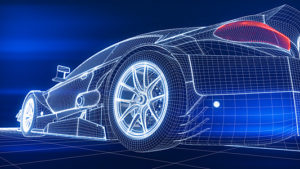Toyota has reportedly started using Panasonic cylindrical lithium-ion cells in two of its new plug-in hybrid models for the China market.
The swap was originally reported last week by Nikkei Asian Review, with detail that Toyota was pushing Panasonic’s regional plant capacity with its order for cylindrical cells to be used by the Corolla plug-in hybrid and Levin plug-in hybrid models.
Although the reports don’t confirm whether the cells are the 2170 format used in the Model 3 or the 18650 format used in the Model S and Model X, the choice marks a departure from both what Toyota uses today in the Prius Prime and what it plans to use in the future: thin, rectangular prismatic cells.

In the end, we chose a Prius Prime
A partnership between Panasonic and Toyota in 2017 announced its intent to study and jointly develop what it called “the best automotive prismatic battery in the industry.”
That culminated in a joint venture between the two companies announced earlier this year. In that venture, 51-percent owned by Toyota, battery-related resources will be pooled between both companies in China and Japan to focus on manufacturing prismatic cells—and aiming to sell those cells to other automakers.

A123 Systems lithium-ion battery cells
Cylindrical cells aren’t completely foreign to Toyota. It’s used them in many hybrids, although its only current plug-in, the Prius Prime, uses prismatic cells from Sanyo. An earlier Toyota fully electric effort, the RAV4 EV, which was developed with Tesla, was powered by Panasonic 18650 lithium-ion cells.
The move might just as well be part of Toyota’s efforts not to become too bound to one chemistry—or format. As Prius chief engineer Shoichi Kaneko explained to Green Car Reports last year, Toyota aim for as much flexibility as possible with battery use and procurement. Case in point: It still engineers its hybrid models to be compatible with either nickel-metal hydride or lithium-ion chemistries.
Tesla has committed to the 2170 cylindrical format for its Model 3 sedan and Model Y crossover—all supplied by Panasonic so far—but it’s also sought to diversity and it’s reportedly made a battery-cell supply agreement with LG Chem.










